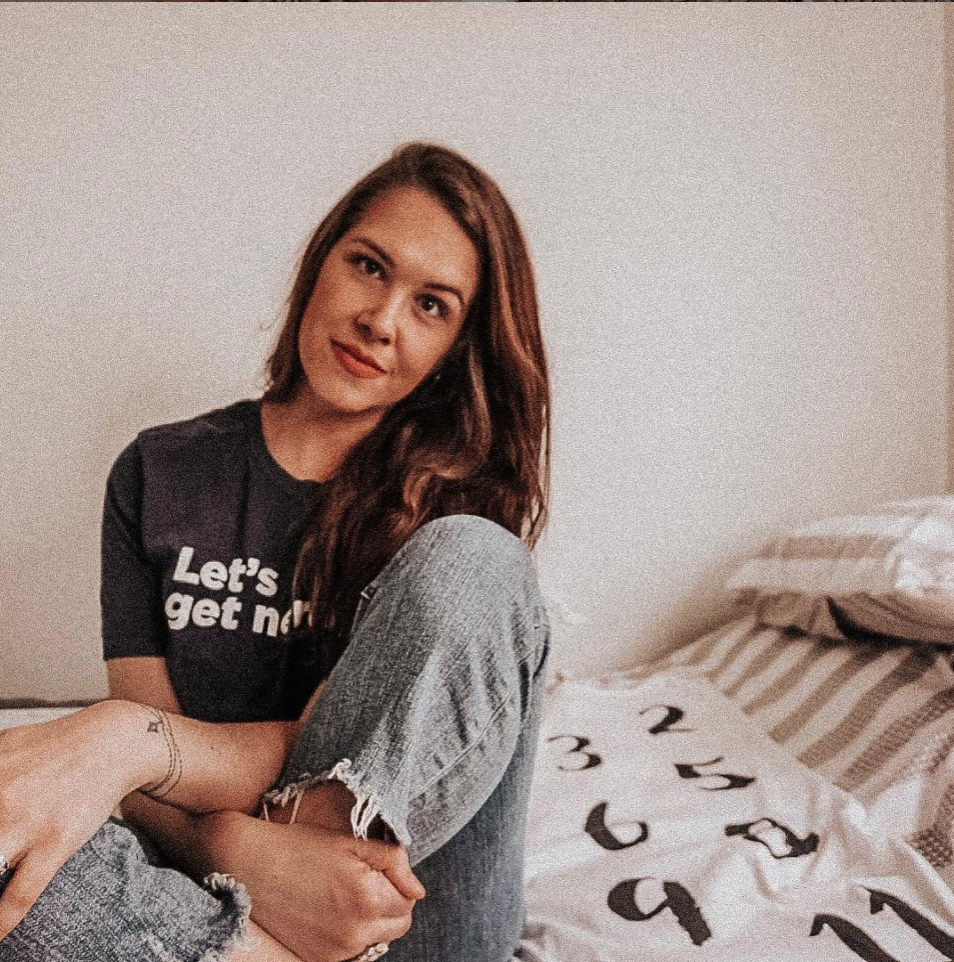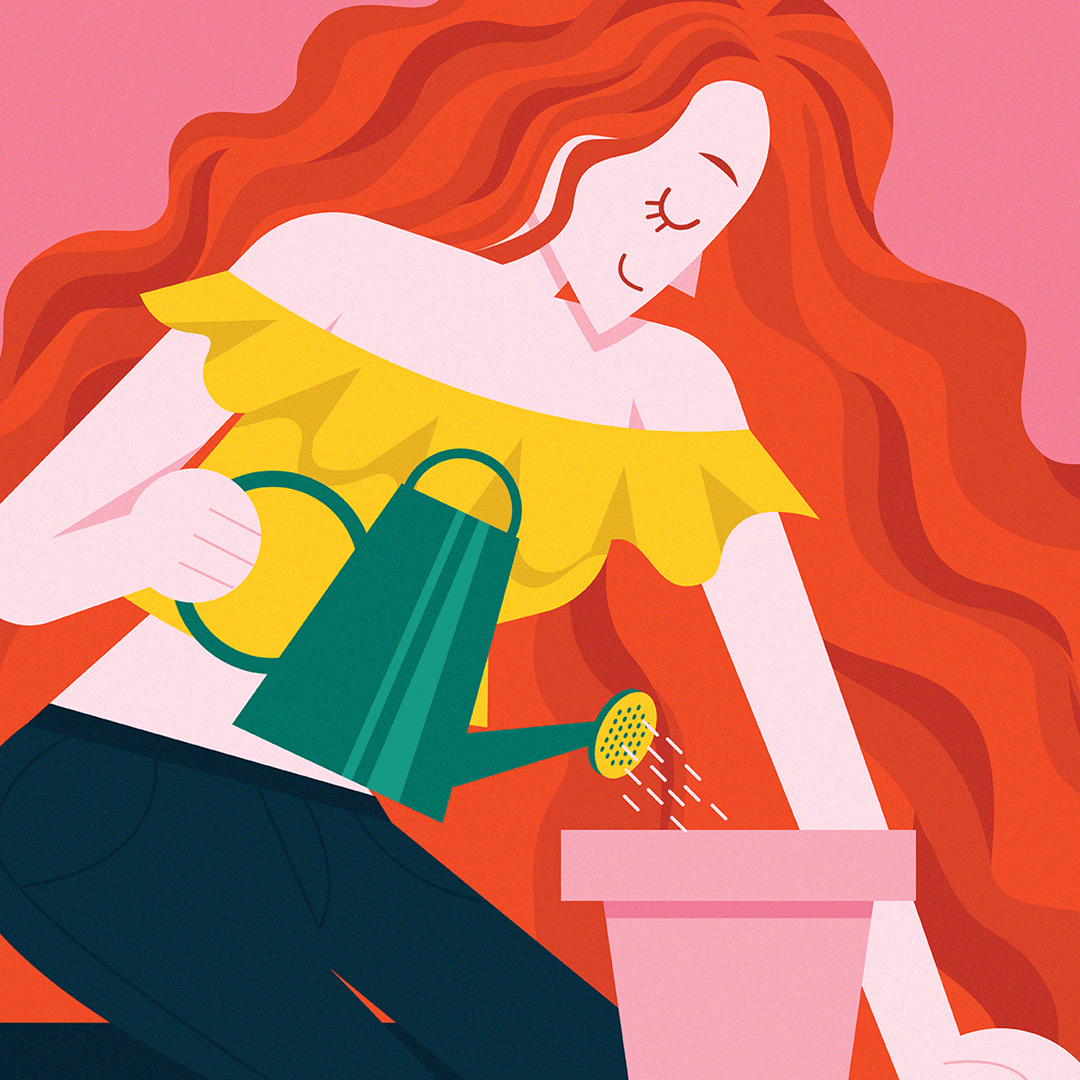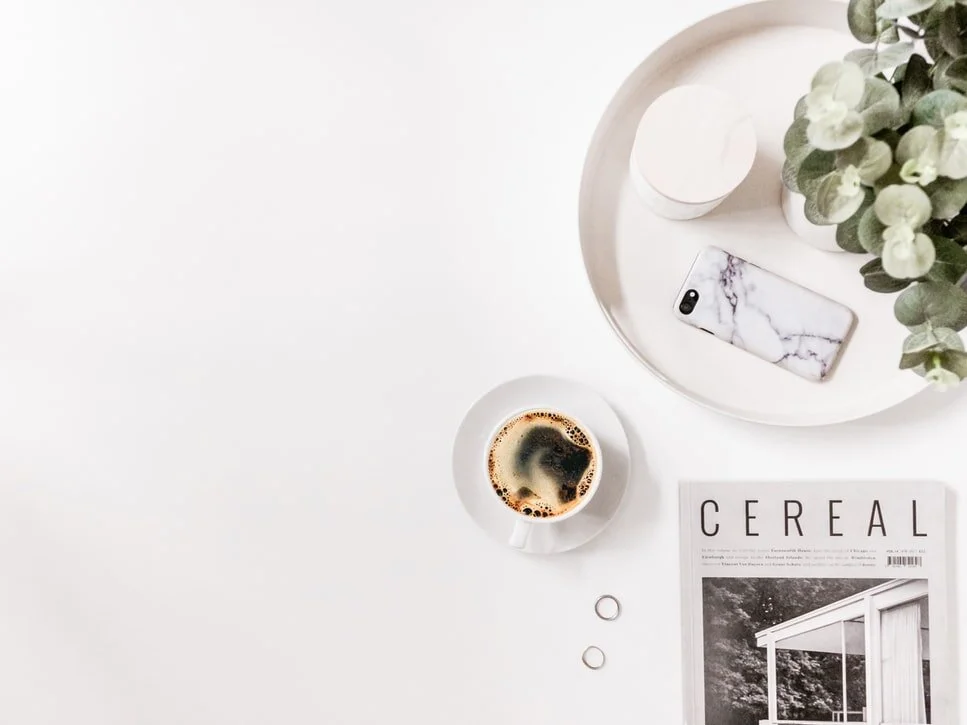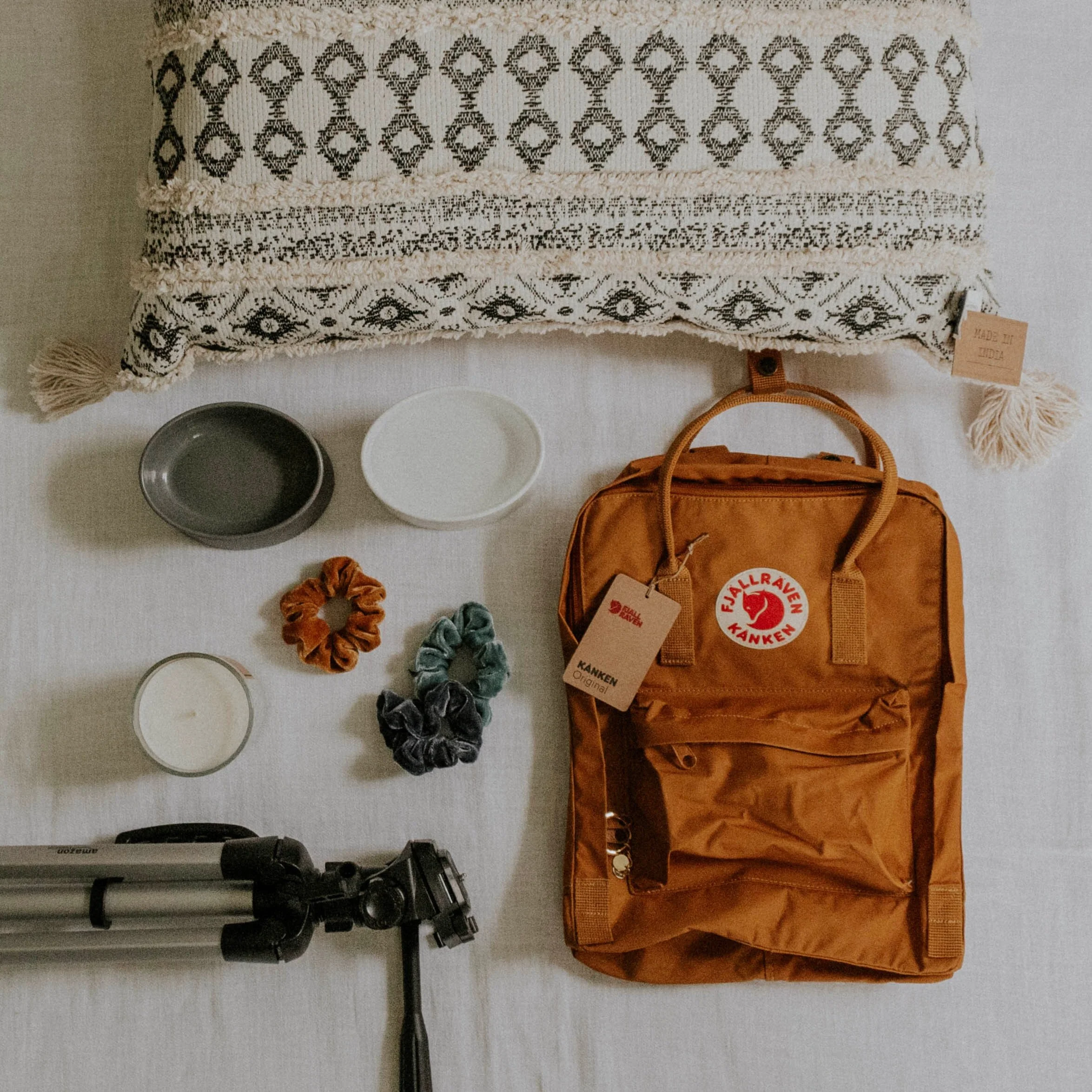A Conversation With Alyssa Davies of Mixed Up Money
By Literally Broke
“Money has primarily been an industry for white men, which makes any woman feel unsafe nearly immediately.”
It’s often assumed that creativity and personal finance don’t really mesh. But Alyssa Davies, AKA Mixed Up Money, is changing all that.
The Mixed Up Money Instagram is home to Alyssa’s bright and biting illustrations. Her work encourages and provokes conversation around financial topics like breadwinning, negotiation, and the existence of billionaires. One of my personal faves is her happy father’s day post dedicated to feminist dads only.
After admiring Alyssa’s illustrations and blog I decided to take our relationship out of our DMs and sit down with her to talk about the various ways money and creativity connect.
You’re Canadian. As an American, I typically think of Canada as the land of plenty where there’s no debt because your social safety nets are so much stronger. Obviously that’s not the whole story because you had debt. Can you talk a little bit about where you were (financially, mentally) when you began Mixed Up Money in 2015 and where you are now 5 years later?
Although it may be true that Canada has a stronger social safety net, we still have plenty of debt that exists across our country. Student loans are still a thing, and that was a small chunk of my debt in 2015.
That year, I was working my first job out of university, struggling to make ends meet. During my time at this job, I faced sexual harassment from my boss to the point where it impacted my mental health. I felt I had no choice but to remove myself from the situation, but I felt trapped because of my consumer debt.
School seemed like the easiest out because I knew I could quickly receive a loan. So, I went back to college on a sports scholarship and took out a loan to pay for my essentials (rent and groceries). My now-husband proposed to me halfway through the school year, so my first realization that I needed to confront my debt was that I would have to pay for a wedding.
I got a new job at a credit counseling agency (THE IRONY) and was working part-time until the end of the school year, and then hopped in full time. After sitting in on some counseling sessions and realizing I was the same as all of our clients, I got serious about repaying my debt and started a blog to hold myself accountable. I reduced my spending, cut my expenses dramatically, did a shopping ban, and paid off all of my consumer debt and student loans within ten months.
Now, just five years later, I’ve accomplished a significant amount of financial success. Including:
Paid off $15,000 of debt in 10 months
Paid for my wedding in full
Doubled my income and net worth
Saved a five-figure emergency fund
Survived two years of parenting
Saved up and purchased my forever home
Released a journal to help you accomplish your financial goals
The main reason for this success? Patience and finally caring about my money.
Much of the Mixed Up Money’s Instagram is filled with your own illustrations (p.s. they're for sale). When did you start illustrating and what’s your process like for creating visual content?
I first started drawing illustrations in 2019, because I wanted to get away from showing my face and focus more on sharing finance-related content.
At first, they were terrible (and very amateur) drawings I would sketch on my phone during my lunch break.
Then COVID-19 hit, and I was looking for a way to fill my once-busy evenings. I downloaded Procreate on a whim, started to practice using the app and fell in love. Since then, I purchased a new iPad, Apple Pencil and many materials to learn how to find my style and technique as an illustrator. It’s been an enjoyable hobby that helps distract from the scariness in the world.
I spend a couple of hours each week scrolling Pinterest, Tumblr and Instagram for things that inspire me, and I take notes to draw an image later. Most of the time, it’s as simple as seeing a cute photo or a funny tweet and thinking: what kind of financial spin can I give? I spend around an hour each night drawing. I also wake up at 2 AM with random ideas that I think are funny, but none of those ideas ever make it to the drawing board.
Since I began Literally Broke I’ve learned a lot about how visual artists on Instagram have their art regrammed and then don’t receive credit (which breaks copyright law). Have you had to deal with situations like that and what advice would you give to other artists in the same boat?
I have read a ton of similar content about stolen imagery or reposting without tagging the artist. I’ve had excellent experiences where people message me to ask if they can share, and what my preferences are, which I respect. I have yet to encounter anyone stealing my content or refusing credit if I come across the images, but I have dealt with people taking my written content from my blog to use in their Instagram captions – which was wild!
Instead of entering extreme panic mode (usually my go-to response), I calmly thought about handling the situation. I felt my best option was to privately message the creator to ask them to do one of two things:
Edit the caption to tag me as the author
Or, remove the caption entirely
I don’t want to discourage people from sharing my content because it ultimately helps me gain traction online. But, I want them to know when they’ve been wrong by another human being — especially an artist.
Thankfully, the person responded and updated the caption. If they hadn’t, I’d likely report the image or seek help from my audience. If I’ve learned anything from other creators who have experienced similar, it's that people are more powerful than Instagram.
You’re a very cool, young mom. I know a lot of creators who want to have kids one day but have no idea how children will fit in with their lives financially and artistically. Can you talk about the way(s) parenthood has affected your career and the kinds of financial preparations people should take if they want to have children now or in the future?
Wow, I've never had someone call me a cool mom. So, thank you?! To be honest, I was never the girl who grew up dreaming of becoming a mother. I didn't have an opinion either way, but I was never going to plan to become a parent. If it happened, it happened. If it didn't, that was okay, too. When it unexpectedly happened, the very first thing I did was the math (she says, immediately disproving the cool comment).
Having a baby is scary because it's a costly expense to navigate, and it isn't easy to pinpoint precisely how much you need to save. I made a massive list of all the expenses I figured I would need to buy in the first year, and I estimated how much of a savings fund I would need to top up my income during maternity leave. Those two steps saved me a ton of stress and fear.
Parenthood, although beautiful, absolutely affects your career. You lose time in the industry, and you cannot gain back those hours down the line without putting in double. But, my friend made sense of the situation for me by mentioning a straightforward reminder: you are never going to regret spending time with your family. But you are going to regret spending too much of your time at work.
Anyone I know who has a kid has found a way to make it work financially. It might not be perfect, but if you are all fed, healthy and happy, the rest is just fluff.
You kept your pregnancy a secret and wrote a great post about the reasons why. How do you create boundaries with your audience?
A big part of how I create boundaries is through my illustrations. For the most part, I’ve removed the most invasive social media element, which is continually feeling pressure to share intimate parts of my life. Now, I get to choose how much is shared by only focusing on Instagram stories and blog posts.
I’m more comfortable sharing the financial side of life than I am with the emotional side. I like to share enough to help followers feel like they know my personality, but not enough to share in my day-to-day living.
You just released a book, The 100-Day Financial Goal Journal, congrats! What inspired you to write a guided journal and how did you go about publishing it?
The craziest part of my experience writing a book was that I was initially approached by the publisher – whereas, for most, it’s the opposite. They engaged with me about creating a journal, and I was immediately on board because I had been tracking the emotional side of my money for years.
It was an easy yes, and they were very straightforward because they loved my writing style. So, most of the freedom was in my hands, and I got straight to writing. It’s been cool to see the journal come to life and see strangers from the Internet share pictures or stories of them using it! I feel so incredibly fortunate.
Over the past five years you’ve built a community that’s a self-described “safe space for women to talk about money.” What are some questions your female readers commonly have about money?
Money has primarily been an industry for white men, which makes any woman feel unsafe nearly immediately. Finding someone you can relate to and that doesn't intimidate you or judge you for your financial decisions is all I wanted when I began my money journey, so I like to help others find the same.
Hands down, the most common questions I get from women are managing their finances with their partners, planning for a family, and investing their money. Many of them are just starting out with their money or realizing that they should be doing more to save for retirement – so it's often about simplifying the basics of finance.
Were you always comfortable sharing your personal experiences and work online?
Definitely not. When I first started my blog, it was an anonymous space. But that fear of judgment associated with debt and the worry that my friends and family might find my website quickly dissolved once people started to engage with my stories.
It took only a matter of weeks before I found a personal finance community with people striving for the same goals as I was, and from that day on, I thought it would be too difficult to hide who I was if I wanted to help others genuinely.
What advice would you give to someone who wants to share their creative work but doesn’t want to open themselves up to criticism?
Boy, oh, boy, you are not alone! I still get the scaries every single time I hit post on any stories or images I share. I think that’s the case because you know that every space on the internet has its trolls. But, the reality is, more people will love and relate to you than you realize.
Although impossible to ignore, criticism has helped me more easily find my audience, acknowledge my brand, and share more ideas. If someone is angry about your creative work, that means you’ve created something worth talking about, and I’d say that in itself, makes it a success. It’s easier said than done but focusing on the people who love what you do is a better use of your energy.














Side hustles are one of the easiest ways to increase your income and achieve your financial goals. Here are fifteen side hustle ideas perfect for creatives.